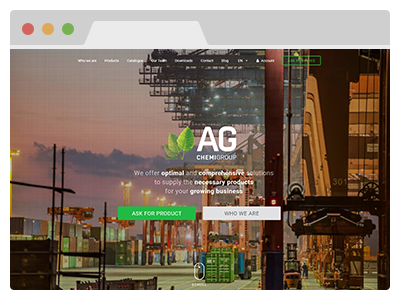The European chemicals industry is doing very nicely, thank you very much for asking. For while American chemical producers enjoy their shale gas boom, and the Far Eastern chemicals sector continues upwards (despite newly adopted ‘Blue Skies’ policies in China), chemical production in Europe is increasing.
Earlier this month (Dec 2017), the European Chemical Industry Council (Cefic) announced that industrial chemical output is expected to see, “a solid 3% growth in 2017, driven by a growing demand from customer industries.” Furthermore, as the industry journal Plastic News reports, “… exports of EU-produced chemicals to Asia and Russia also increased in 2017.”
EU Chemical Industry Downfall
The growth number is not huge, but it is significant given the general economic stagnation that has hovered over much of Europe, especially around the Mediterranean, for almost a decade.
Just a few years ago, the European chemical sector seemed to be in a no-win situation, with its competitors all having fundamental economic advantages. In the US, shale was starting to come online; the Far East was experiencing amazing economic growth, committed central government planning, and easy construction rules, while the Middle East was enjoying direct access to oil that was expensive everywhere else.
Europe, meanwhile, was economically stagnant, politically uncertain and energy prices were the highest in the world. As Cefic noted in June 2015, “the average price of industrial energy per MWh for Italy was €121, Germany €99, the Netherland €90, Spain €70, the UK €64. Whilst in the USA it cost only €47, China €30, Russia €19 and Saudi Arabia €15.”
Meanwhile, the political support that the EU chemical industry did receive was seen as a disadvantage, as the powers in Brussels pushed ahead with creating REACH, a continent wide, uniform Registration, Evaluation, Authorisation and Restriction of Chemicals. Chemical industry leaders objected to the extra red-tape, claiming it will add unnecessary costs. They were even more confused by the bureaucratic decision to place the REACH HQ in Helsinki!
EU Chemical Industry Rise
Today, the shoe is on the other foot. EU’s political will is strong, the currency stable, and the economy starting to grow. Even more interestingly, is that REACH, is now seen as the visionary regulator that all regional and national chemical sectors need, spawning numerous copy-cat programs, such as K-REACH, CHINA REACH, J-REACH, Turkey’s KKDIK, Vietnam’s Vinachemia and others.
The chemical industry is now embracing the legislation, and actively takes part in its enhancement. For example, the German chemical industry association (VCI) issued a press-release outlining recommendations for the 3rd phase of chemical product registration.
A positive, constructive document that acknowledged that, “REACH registrations have improved the data situation for many substances.”
Now celebrating its 10th year, REACH is a members’ club that all chemical products want to join. A fact highlighted by the UK chemical industry and its concern over Brexit. As Bloomberg reports, “The U.K.’s $54 billion chemical and pharmaceutical industry pushed the government to keep the European Union regulatory framework for the sector, joining other lobby groups heaping pressure on Prime Minister Theresa May to avoid rupturing ties with the nation’s leading export market.” Adding that, “although the introduction of REACH 10 years ago initially caused consternation to the U.K.’s chemical industry amid fears of extra costs and bureaucracy, being outside the system now would be harmful. Having a U.K.-specific regulatory framework could amount to hundreds of millions of pounds in costs being duplicated as companies seek to comply with a new set of rules.”
“REACH is far from perfect, but it is our belief that the best way of minimizing any disruption to supply chains,” notes Chemical Industries Association Chief Executive Steve Elliott.
EU Chemical Industry Future
Euler Hermes, a major trade credit insurance business, recently published a report stating that the UK chemical industry faces a £7 billion loss as a result of leaving the EU. While no-one can be certain how the UK’s exit will impact EU chemical companies, there is a lot of irony in the Brexit process occurring at a time when the EU is beginning to gain political and economic strength.
In fact, given the business conditions that existed following the 2008 crash, it is amazing how the EU’s chemicals industry is beginning to see much bluer skies in its future than China.
Client Zone – Stay in Touch with All the Important Information

Take the opportunity to register in our client zone to find complete product specifications and the latest updates on special offers.
Client Zone Sign Up
Photo credit: ChemicalIndustryJournal & Reuters/RT